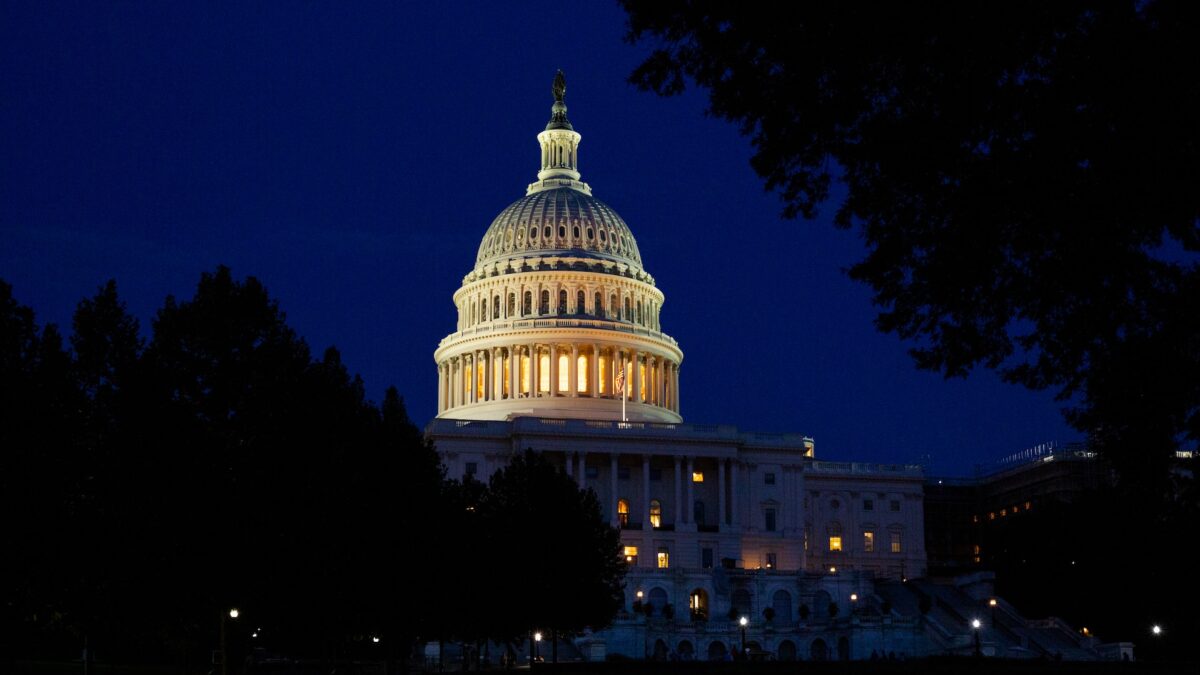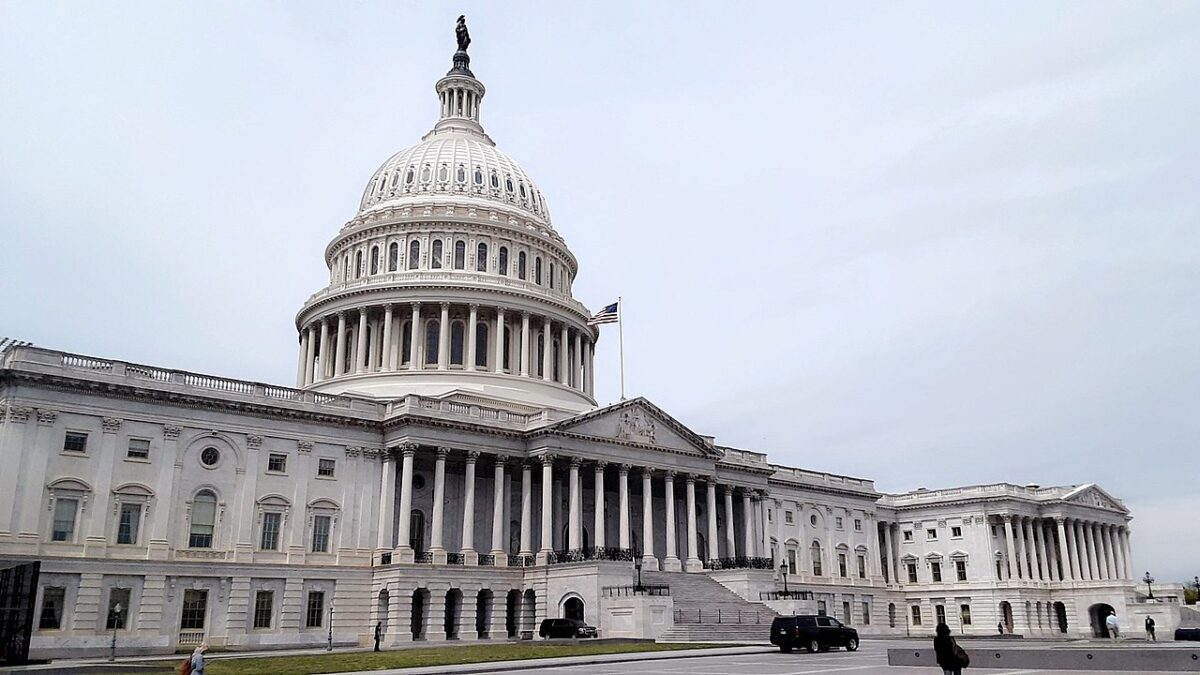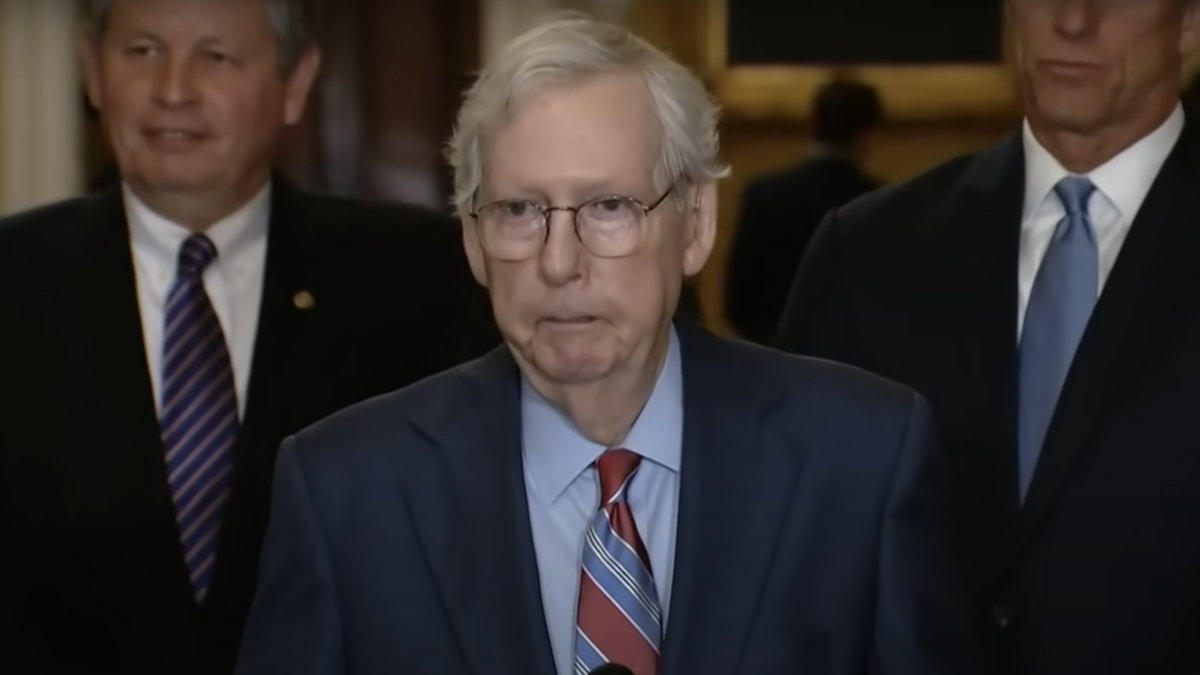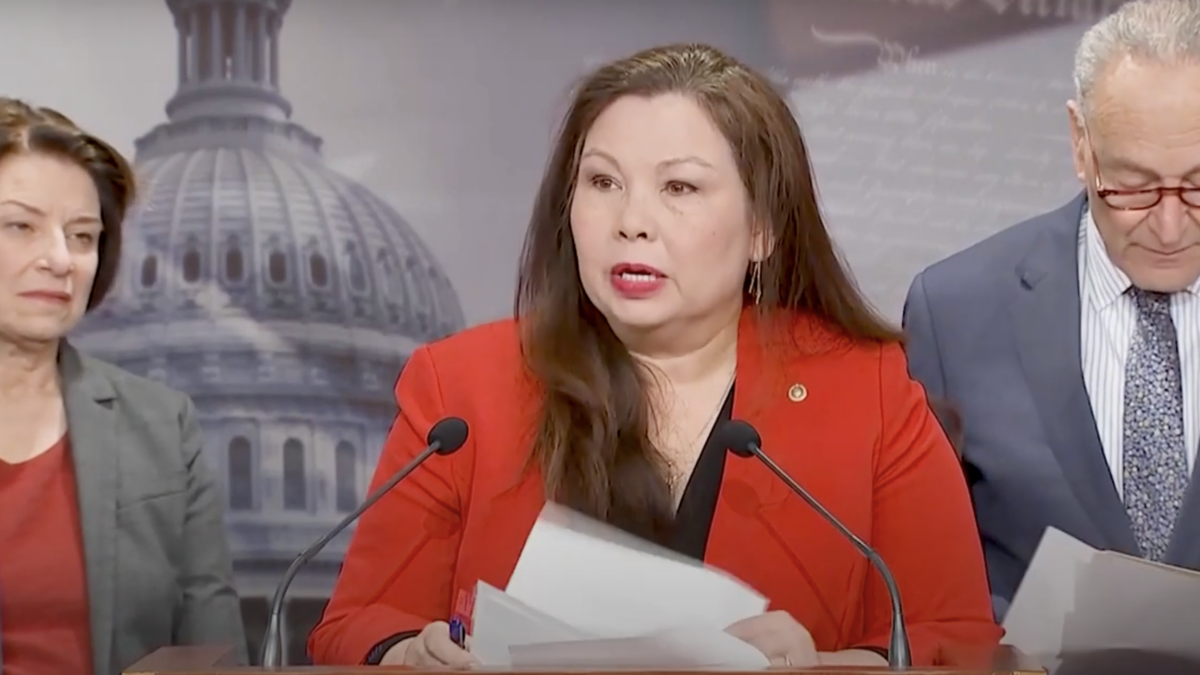The outline of the spending agreement House Speaker Mike Johnson, R-La., cut with Democratic leaders sounds bad on its face. But the underlying reasons for that agreement seem far worse.
As I wrote last week, “Speaker Johnson and Republican ‘leadership’ … bailed the Democrats out of the predicament they put themselves in last May.” To which I should make an important addition: In many ways, Johnson didn’t bail out Democrats from a tough political predicament as much as he did his own Republican members. Because most Republicans don’t want to reduce spending — and they don’t want their constituents to know that either.
Dynamics of a ‘Shutdown Showdown‘
Consider the conventional wisdom regarding so-called “government shutdowns.” (They’re so-called because the essential functions of government continue when Congress hasn’t passed appropriations legislation, but set the semantics aside temporarily.) Conventional wisdom in Washington holds that the party seen as initiating the “shutdown” will bear the political responsibility/blame for the impasse.
For instance, conservatives have in recent weeks coined the slogan, “shut down the border or shut down the government,” demanding an end to the Biden administration’s immigration fecklessness as part of any spending agreement. But under this scenario, conservatives would be seen as initiating this “shutdown,” by insisting on immigration policy changes as part of any spending agreement. Establishment types therefore have gotten nervous about this possibility, assuming that the media would “blame” Republicans for any “shutdown.”
But when it comes to spending, last spring’s debt limit deal flipped the dynamics on its head, as I outlined last week. In theory, Johnson could — and should — bring to the House floor a very simple one-sentence piece of legislation. The bill in question would only change the date on the current spending bills — some of which expire on Jan. 19 (Friday), and the rest of which expire on Feb. 2 — from those respective dates to Sept. 30, the end of the current fiscal year.
All of the policies would remain the same, policies enacted by a Democratic Congress late in 2022. The only thing that would change is that spending cuts would kick in effective April 30, as per last year’s debt limit legislation, because Congress didn’t pass new appropriations measures.
If Johnson brought this one-sentence bill to the floor, how could Democrats object? Would they object to continuing the policies they passed under Democratic control? Or would they object to the implementation of the spending reductions included in the debt limit bill, and if so, why did they vote for that legislation in the first place?
In theory, Republicans could have a political field day with this scenario. Senate Democrats would have to filibuster a bill implementing parts of a debt limit agreement that 46 out of 51 of them supported back in June. What would they say? “I voted for the spending caps before I voted against them?”
Even for Washington’s leftist media, this amount of hypocrisy could prove too much to swallow. Democrats could get blamed for a “shutdown,” by reneging on a framework they voted for last spring just so they could keep spending our country to perdition.
Spineless Republicans
There’s just one problem with this scenario: Many, if not most, congressional Republicans wouldn’t vote for a change-the-date spending bill. Because they have about as much interest in cutting spending as do Democrats.
Take this statement from Sen. Susan Collins, R-Maine, ranking Republican on the Senate Appropriations Committee:
While I continue to believe that additional defense funding is necessary, I hope this [Speaker Johnson] agreement will help us avoid a year-long continuing resolution, implementation of the [Fiscal Responsibility Act, i.e., the debt limit bill] CR penalty [i.e., the automatic spending cuts], or a government shutdown, which would be disastrous for our national defense, homeland security, biomedical research, and many other programs.
In other words, Collins wants to spend more money than under the spending caps, and she doesn’t just want to spend more money on defense and border security either. She wants to keep up the Covid spending binge across the board.
She’s not alone. Many other congressional Republicans — particularly appropriators — have taken this position. Some of them have couched their support for Johnson along the lines of “A deal’s a deal,” meaning that the speaker cannot undo what he agreed to a week ago. But others have gone further and tried to justify Johnson cutting a deal that, for the reasons outlined above, he didn’t need to make to begin with.
For instance, Rep. David Joyce, R-Ohio, a House appropriator, claimed that “shutting down the country … never really gets any goals truly accomplished.” That phraseology adopts the Democrat position that passing a bill triggering the debt limit’s spending caps amounts to “shutting down the country,” when in reality it would merely implement a law most Democrats voted for.
Another appropriator, Rep. Mike Simpson, R-Idaho, took a similar tack, saying that he “didn’t know what [Johnson] would have done differently. … He handled the cards he was dealt.” Except that Johnson didn’t “handle” his cards at all. He folded them.
A moderate lawmaker, Rep. Don Bacon, R-Neb., perhaps came closest to hitting the nail on the head when he claimed that House Republicans have “got to govern. … And, by the way, I think 90 or 95 percent of us are fully in sync on this.” In this context, one could easily view “governing” as “spending more money.”
The idea that many House Republicans — perhaps not 90-95 percent, but a large proportion — have absolutely zero interest in seeing the spending caps go into effect explains why Johnson cut his bad deal: to save his own members’ rear ends. Sure enough, that’s exactly what one article this weekend reported:
Johnson asked a group of moderate Republicans if they could support a full-year continuing resolution [i.e., a bill that would trigger automatic spending reductions, as outlined above] during a meeting in his office on Friday, and nearly all lawmakers said no, according to one attendee.
Translation: Republicans don’t want to cut spending — and Johnson cut his bad deal to bail his members out of their own spinelessness.
Snuff Out the Spenders
Following Johnson’s announcement of his agreement, a dozen conservatives brought House floor proceedings to a halt last Wednesday by voting against a procedural rule governing debate on other legislation. They didn’t get Johnson to renegotiate his spending agreement with Democrats, he reendorsed the deal on Friday, but they did draw attention to the folly of its big-spending policies.
The conservatives should follow that up by requesting that Johnson bring the change-the-date bill to the House floor this week, ahead of the first “shutdown” deadline this Friday. Johnson doesn’t have to abrogate his spending agreement with Democrats. He can still bring it to the floor, and vote for it if he wants. But conservatives can and should insist on a public vote that would at least start the process of cutting spending below Covid levels.
If the change-the-date legislation passes the House, then Senate Democrats will face the dilemma I outlined above, of opposing the implementation of a debt limit deal they voted for last spring. If it doesn’t, then at least conservatives will know which House Republicans actually believe in reducing spending and which don’t.
That piece of information will prove enlightening later this year, and in future years, as congressional Republicans face primaries to remain in office. Because to borrow the old phrase, if conservatives can’t make Washington Republicans see the light about cutting spending, they need to make them face the heat.









